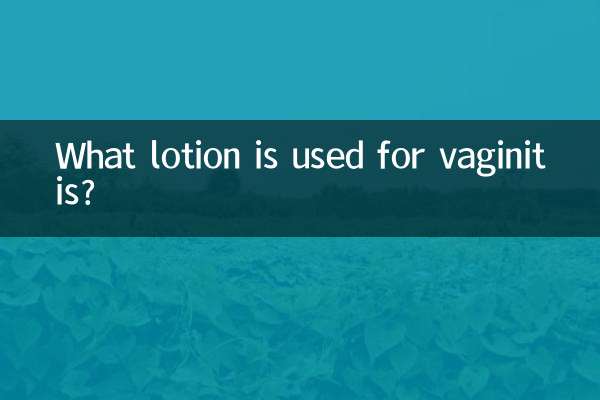What medicine should I take for postoperative diarrhea?
Postoperative diarrhea is one of the common problems that many patients may encounter after surgery. Due to the impact of surgery on the digestive system, coupled with the use of antibiotics or other medications, an imbalance in intestinal flora may lead to diarrhea. This article will combine the hot topics and hot content on the Internet in the past 10 days to give you a detailed introduction to the drug treatment options and precautions for postoperative diarrhea.
1. Common causes of postoperative diarrhea

The occurrence of postoperative diarrhea is usually related to the following factors:
| Reason | Description |
|---|---|
| antibiotic use | Antibiotics may destroy normal intestinal flora and cause diarrhea |
| surgical stress | Direct or indirect effects of surgery on the digestive system |
| dietary changes | Irregular diet or insufficient nutritional intake after surgery |
| drug side effects | Certain pain relievers or chemotherapy drugs may cause diarrhea |
2. Drug treatment of postoperative diarrhea
According to recent medical hot spots and expert recommendations, the following drugs can be used to treat postoperative diarrhea:
| drug type | Representative medicine | Mechanism of action | Things to note |
|---|---|---|---|
| antidiarrheal medicine | Loperamide, montmorillonite powder | Slow down intestinal peristalsis and absorb toxins | Not suitable for long-term use. Use with caution in cases of infectious diarrhea. |
| Probiotics | Bifidobacterium, Lactobacillus | Restore intestinal flora balance | Take 2 hours apart from antibiotics |
| antibiotics | Metronidazole, vancomycin | Target specific pathogen infections | A doctor's prescription is required and no abuse is allowed. |
| rehydration salts | Oral rehydration solution III | Prevent and correct dehydration | Prepare according to instructions |
3. Dietary management of postoperative diarrhea
In addition to drug treatment, dietary conditioning is also important:
| food category | Recommended food | avoid food |
|---|---|---|
| staple food | White porridge, soft noodles, steamed buns | Whole grains and fried foods |
| protein | Steamed eggs, soft tofu | Fatty meat, beans |
| fruits and vegetables | Apple puree, carrots | High fiber vegetables, citrus |
| drinks | Light salt water, rice soup | coffee, alcohol |
4. When Do You Need Medical Treatment?
Postoperative diarrhea can resolve on its own in most cases, but you should seek medical attention promptly if:
| Symptoms | possible prompt |
|---|---|
| No relief lasts for more than 3 days | Treatment may need to be adjusted |
| severe dehydration symptoms | Such as dizziness, oliguria, dry mouth |
| Fever or bloody stools | Possible infection or complications |
| Increased abdominal pain | Urgent conditions such as intestinal obstruction need to be ruled out |
5. Measures to prevent postoperative diarrhea
According to recent medical research, the following measures can help prevent postoperative diarrhea:
| Precautions | Specific methods |
|---|---|
| Rational use of antibiotics | Strictly follow the doctor’s instructions and do not adjust the dosage on your own |
| Preoperative bowel preparation | Clean as directed by your doctor |
| early activity | Get out of bed as soon as possible after surgery to promote recovery of intestinal function |
| progressive diet | Gradually transition from liquids to a normal diet |
6. Latest suggestions from experts
According to content published in recent medical conferences and journals, experts have put forward the following new perspectives on postoperative diarrhea:
1.Combined use of microecological regulators: The latest research shows that the combined use of multiple probiotics is more effective than a single strain.
2.Individualized treatment plan: Develop a personalized medication plan based on the type of surgery, patient age and underlying disease.
3.Pay attention to nutritional support: During diarrhea, adequate caloric and protein intake should be ensured, and special medical formulas should be used if necessary.
4.Traditional Chinese medicine auxiliary: Certain traditional Chinese medicine prescriptions such as Shenling Baizhu Powder have good effects on postoperative diarrhea due to spleen deficiency.
Conclusion
Although postoperative diarrhea is common, it can mostly be relieved through reasonable drug treatment and dietary modification. The cause and severity of diarrhea should be considered when choosing a drug, and consult a doctor if necessary. At the same time, maintaining good post-operative care habits can help prevent diarrhea. If symptoms persist or worsen, be sure to seek medical attention promptly to avoid delaying treatment.

check the details

check the details